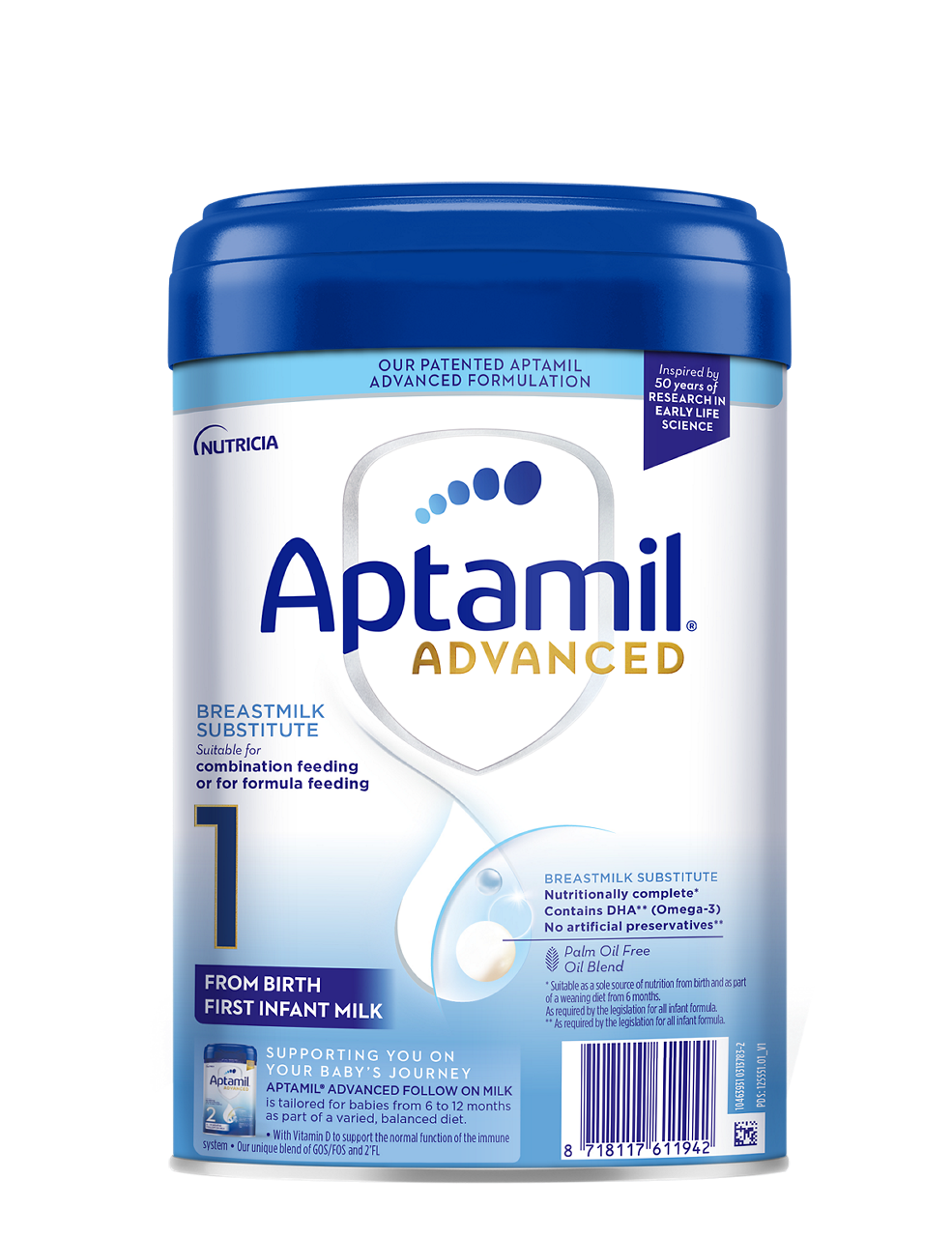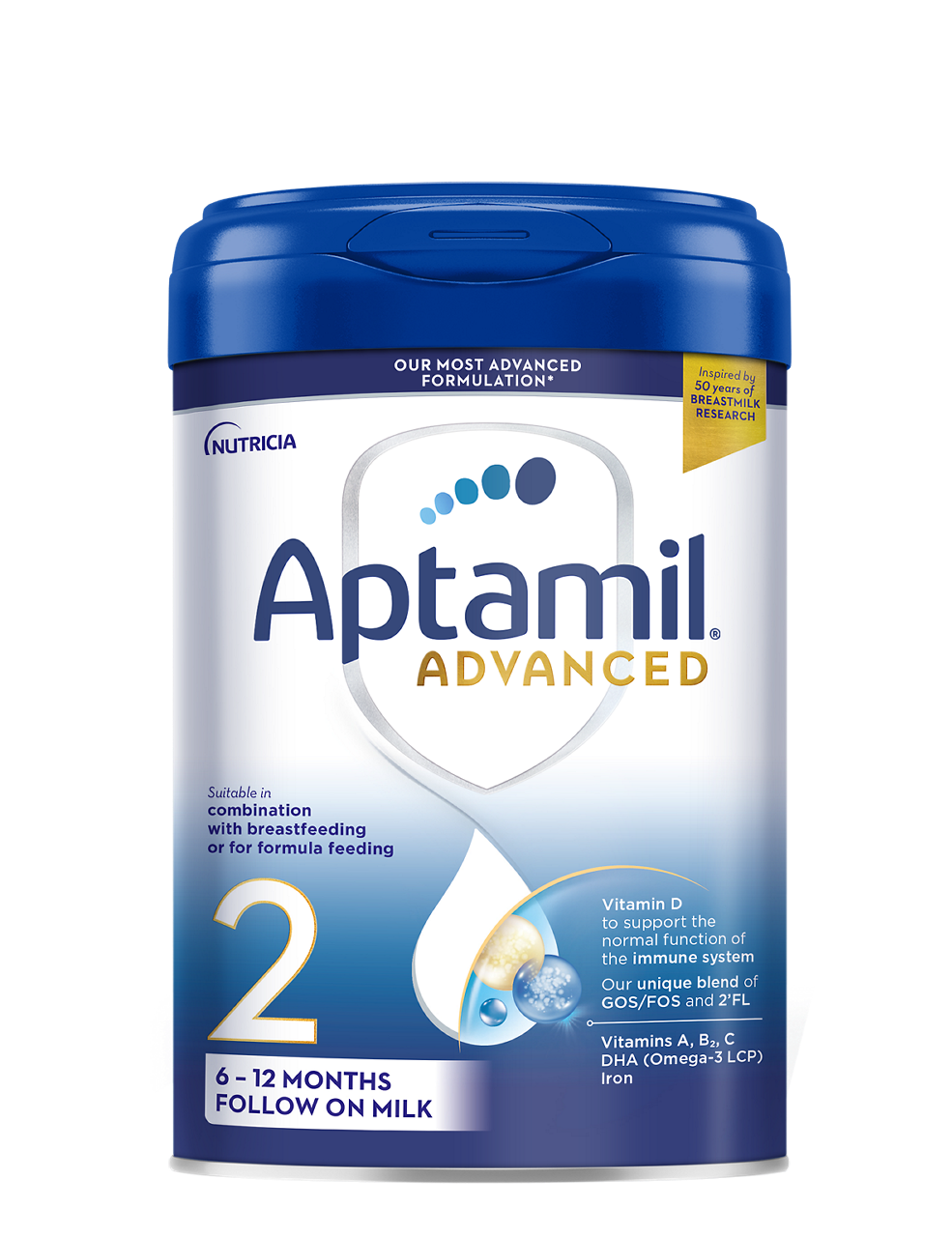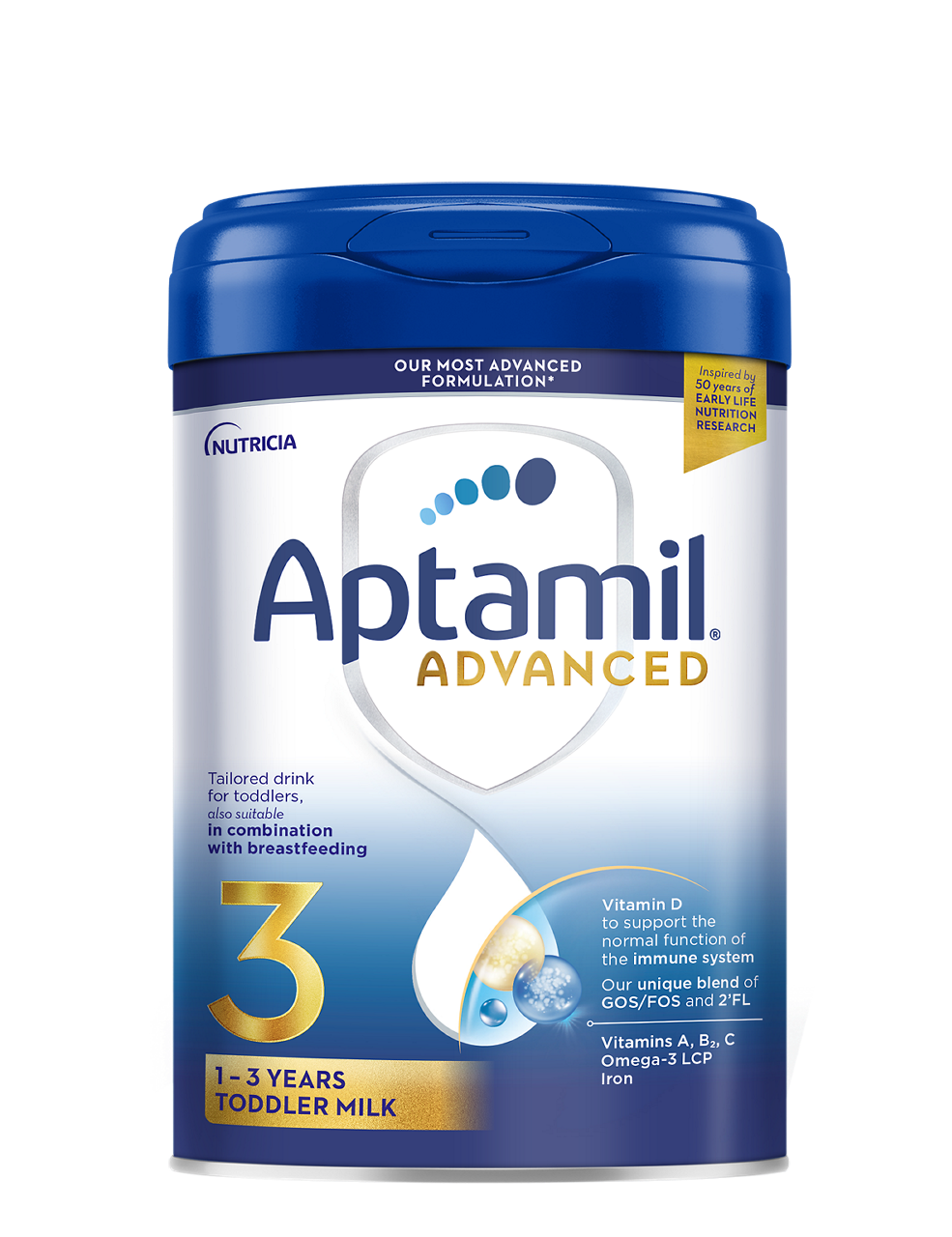



Aptamil® Advanced First Infant Milk Ready To Feed 200ml
Inspired by 50 years of research in early life science, our team of scientists have developed Aptamil® Advanced First Infant Milk. Suitable for combination feeding or for formula feeding, it is nutritionally complete, as required by the legislation for all infant formula, and suitable as the sole source of nutrition from birth, and as part of a weaning diet from 6 months.
details
Product info
Inspired by 50 years of research in early life science, our team of scientists have developed Aptamil® Advanced First Infant Milk. Suitable for combination feeding or for formula feeding, it is nutritionally complete, as required by the legislation for all infant formula, and suitable as the sole source of nutrition from birth, and as part of a weaning diet from 6 months.
Water, Dairy-based blend (of which 33% is fermented) [Skimmed milk, Lactose (from milk), Vegetable oils (Sunflower oil, Rapeseed oil, High oleic sunflower oil, Coconut oil), Demineralised whey (from milk), Emulsifier (Soy lecithin), Whey concentrate (from milk), Fish oil, Calcium phosphate, Potassium chloride, Choline chloride, Potassium citrate, Vitamin C, Potassium hydroxide, Sodium citrate, Inositol, Magnesium chloride, L-Carnitine, Vitamin E, Pantothenic acid, Nicotinamide, Calcium carbonate, Antioxidant (Vitamin C), Riboflavin, Thiamin, Vitamin B6, Potassium iodide, Folic acid, Vitamin K1, Biotin, Vitamin B12], Galacto-oligosaccharides (GOS) (from milk), Anhydrous milk fat, Whey protein (from milk), Emulsifier (Mono- & diglycerides of fatty acids), 2'-Fucosyllactose (2'-FL), Fructo-oligosaccharides (FOS), Oil from Mortierella Alpina, Acidity regulator (Citric acid), Potassium hydrogen carbonate, Sodium chloride, Calcium hydroxide, Sodium hydrogen carbonate, Potassium dihydrogen phosphate, Taurine, Ferrous lactate, Magnesium oxide, Zinc sulphate, Uridine 5'-monophosphate sodium salt, Cytidine 5'-monophosphate, Adenosine 5'-monophosphate, Inosine 5'-monophosphate sodium salt, Guanosine 5'-monophosphate sodium salt, Vitamin A, Copper sulphate, Sodium selenite, Manganese sulphate, Vitamin D3.
Allergy advice: For allergens, see ingredients in bold.
- Nutritional values
- Typical values per 100ml
- Energy
- 276kJ/66kcal
- Fat
- 3.4g
- of which, saturates
- 1.6g
- of which, mono-unsaturates
- 1.1g
- of which, polyunsaturates
- 0.7g
- of which, LCPs††
- 0.038g
- - Arachidonic acid (AA)
- 0.017g
- - Docosahexaenoic acid (DHA)
- 0.017g
- Carbohydrate
- 7.3g
- of which, sugars
- 7.2g
- of which, lactose
- 6.9g
- of which, polyols
- 0.007g
- - Inositol
- 0.007g
- Fibre
- 0.7g
- of which, GOS°
- 0.48g
- of which, FOS◊
- 0.08g
- of which, 3'-GL††
- 0.02g
- of which, 2'-FL¥
- 0.10g
- Protein
- 1.3g
- Vitamins
- Vitamin A
- 58µg
- Vitamin D3
- 1.6µg
- Vitamin E
- 1.1mg TE
- Vitamin K1
- 4.1µg
- Vitamin C
- 9.9mg
- Thiamin (B1)
- 0.07mg
- Riboflavin (B2)
- 0.14mg
- Niacin (B3)
- 0.43mg
- Vitamin B6
- 0.05mg
- Folate
- 13µg
- Vitamin B12
- 0.17µg
- Biotin
- 1.8µg
- Pantothenic acid
- 0.54mg
- Minerals
- Sodium
- 24mg
- Potassium
- 88mg
- Chloride
- 54mg
- Calcium
- 42mg
- Phosphorus
- 34mg
- Magnesium
- 5.3mg
- Iron
- 0.53mg
- Zinc
- 0.51mg
- Copper
- 0.052mg
- Manganese
- 0.003mg
- Fluoride
- ≤ 0.006mg
- Fluoride
- 3.0µg
- Iodine
- 13µg
- Others
- L-Carnitine
- 2.1mg
- Choline
- 22mg
- Taurine
- 5.4mg
- Non-caloric carbohydrate (GOS°)
- 0.2g
- Nucleotides
- 2.3mg
†Long-chain polyunsaturated fatty acids
°Galacto-oligosaccharides
◊Fructo-oligosaccharides
††3'-Galactosyllactose
¥2'-Fucosyllactose
How to prepare Aptamil® Advanced Follow on Milk
Please follow these instructions carefully. Failure to follow instructions may make your baby ill.
Step 1
Wash hands and sterilise all utensils according to manufacturers’ instructions.
Step 2
Shake bottle well. Pour the required amount into a sterilised feeding beaker.
Step 3
Serve at room temperature, or warmed if desired. If warmed, check temperature of feed.
Step 4
For hygiene reasons, discard unfinished milk in the feeding bottle as soon as possible, and always within 2 hours.
Age indication:
Suitable from 6-12 months
Legal name:
First Infant Milk, with a 33% fermented dairy-based blend
Name and address:
Nutricia Ltd,
White Horse Business Park,
Trowbridge,
Wiltshire,
BA14 0XQ
Net weight:
200ml e
Store in a cool, dry place before opening.
Once opened, unused First Infant Milk still in the bottle must be refrigerated immediately and used within 24 hours.
Aptamil® Advanced First Infant Milk 200ml ready to feed bottle is halal certified.
What other Aptamil products are halal approved?
Our range
Your baby’s journey

Need some help?
You can get quick answers to common questions in our FAQs.
Alternatively, if you need help with general pregnancy or baby advice, or maybe on using or ordering our products - our expert team are always on hand to talk about feeding your baby.
*with iron to support normal cognitive development
**To verify contact us at Aptaclub.co.uk/ask-us. GOS/FOS and 2’FL – our unique blend of Galacto- and Fructo-oligosaccharides with 2’-Fucosyllactose
Important notice
Breastfeeding is best. Infant formula is suitable from birth when babies are not breastfed. Follow On Milk is only for babies over 6 months, as part of a mixed diet and should not be used as a breastmilk substitute before 6 months. We advise that the use of formula milks and the decision to start weaning should be made only on the advice of a doctor, dietitian, pharmacist or other professional responsible for maternal and child care based on baby’s individual needs.
Use Toddler Milk as part of a varied, balanced diet from 1 year.




